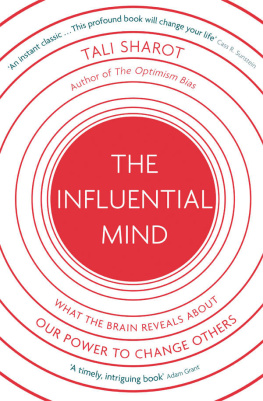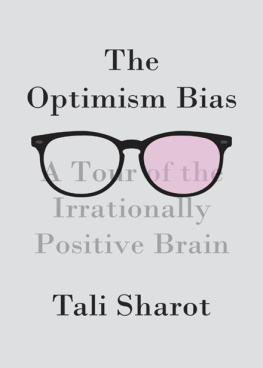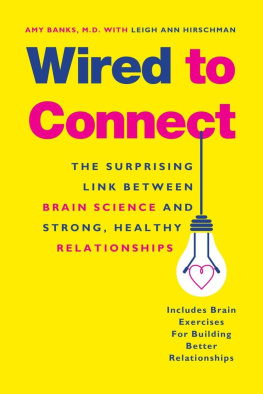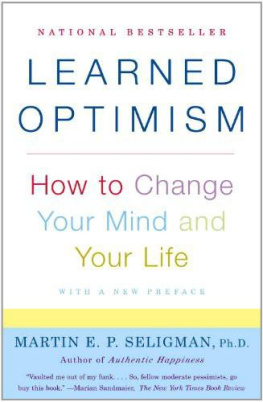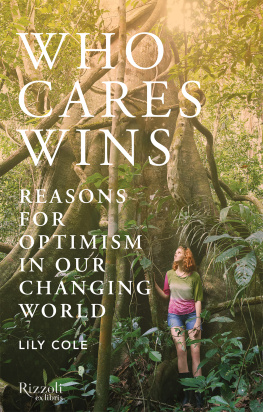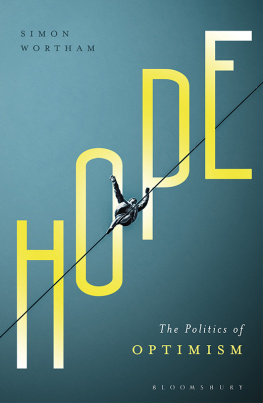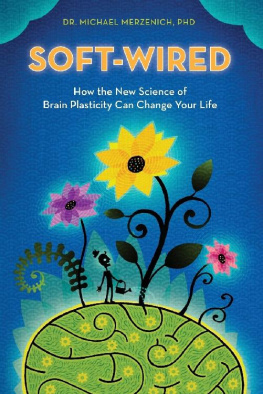Tali Sharot - The Science of Optimism: Why Were Hard-Wired for Hope
Here you can read online Tali Sharot - The Science of Optimism: Why Were Hard-Wired for Hope full text of the book (entire story) in english for free. Download pdf and epub, get meaning, cover and reviews about this ebook. year: 2012, publisher: TED Conferences, genre: Politics. Description of the work, (preface) as well as reviews are available. Best literature library LitArk.com created for fans of good reading and offers a wide selection of genres:
Romance novel
Science fiction
Adventure
Detective
Science
History
Home and family
Prose
Art
Politics
Computer
Non-fiction
Religion
Business
Children
Humor
Choose a favorite category and find really read worthwhile books. Enjoy immersion in the world of imagination, feel the emotions of the characters or learn something new for yourself, make an fascinating discovery.

- Book:The Science of Optimism: Why Were Hard-Wired for Hope
- Author:
- Publisher:TED Conferences
- Genre:
- Year:2012
- Rating:3 / 5
- Favourites:Add to favourites
- Your mark:
- 60
- 1
- 2
- 3
- 4
- 5
The Science of Optimism: Why Were Hard-Wired for Hope: summary, description and annotation
We offer to read an annotation, description, summary or preface (depends on what the author of the book "The Science of Optimism: Why Were Hard-Wired for Hope" wrote himself). If you haven't found the necessary information about the book — write in the comments, we will try to find it.
Fresh research that explores the part of the brain where optimism lives, providing fresh and surprising biological and cultural reasons as to why we all generally expect sunny skies ahead.
Tali Sharot: author's other books
Who wrote The Science of Optimism: Why Were Hard-Wired for Hope? Find out the surname, the name of the author of the book and a list of all author's works by series.
The Science of Optimism: Why Were Hard-Wired for Hope — read online for free the complete book (whole text) full work
Below is the text of the book, divided by pages. System saving the place of the last page read, allows you to conveniently read the book "The Science of Optimism: Why Were Hard-Wired for Hope" online for free, without having to search again every time where you left off. Put a bookmark, and you can go to the page where you finished reading at any time.
Font size:
Interval:
Bookmark:
This book advances the reporting TaliSharot has done into the science and study of optimism, delvinginto the biological reasons as to why we humans generally believethe future will be better than yesterday or today. As way ofbackground, some parts of have been adapted from a Timemagazine article written by Sharot, as well as portions of herbook The Optimism Bias and from a TED Talk she deliveredin March 2012. Permission for reprint was obtained from allrelevant sources.
We all like to think of ourselves asrational creatures who smartly prepare for the worst. We watch ourbacks, weigh the odds, and pack an umbrella when the skies lookthreatening. But although we take such precautions, we generallyexpect things to turn out pretty well often better than they do.
This belief that the future will probably be much better thanthe past and present is known as the optimism bias, and most ofus have it. The optimism bias is our tendency to overestimate thelikelihood of good events happening to us in the future andunderestimate the likelihood that bad events will come crashingdown. For instance, people hugely underestimate their chances oflosing their job or being diagnosed with cancer. They also envisionthemselves achieving more than their peers and overestimate theirlikely life span (sometimes by 20 years or more).
In short, we are often more optimistic than realistic.
Take marriage, for example. In the Western world, divorce ratesare over 40 percent 2 out of 5 marriages end in divorce.But newlyweds estimate their own likelihood of divorce at 0percent. Even divorce lawyers, who should know better, hugelyunderestimate their own likelihood of divorce. Although thesunniest optimists are just as likely to divorce as the next guy,they are also more likely to remarry. In the words of the Englishauthor Samuel Johnson, Remarriage is the triumph of hope overexperience.
If we have children, many of us believe our kids will beespecially talented, even while thinking our neighbors kids arentall that promising. We are optimistic about our own future, and thefuture of our children and our family, yet we are not so optimisticabout the fate of the guy sitting next to us. A survey conductedin 2007 on behalf of the BBC found that 93 percent of respondentswere optimistic about the future of their own family, while only 17percent were optimistic about the future of other families.Collectively, we can grow pessimistic about the future of ourfellow citizens, about the direction of our country, about theability of our leaders to improve education and reduce crime while we continue to think our own future is bright. Why doesprivate optimism about our personal future remain incrediblyresilient? It is not that we think things will magically turn outOK for us, but rather, we believe we have the unique abilities tomake it so.
Ill show you what I mean. I am going to give you a list ofabilities and characteristics. For each one, I want you to thinkwhere you stand on that ability relative to other people.
First, getting along well with others. Do you believe you are atthe bottom 25 percent? Top 25 percent? Bottom 50 percent? Top 50percent? Now do the same for your driving ability. How interestingare you? How attractive? How honest? And finally how modest areyou?
In a survey by two Ohio researchers, 25 percent of respondentssaid they were in the top 1 percent for getting along well withothers. A separate study of college students found that 93 percentof respondents in the U.S. believed they were above average indriving ability. Most people would even be willing to bet money onit if you asked them to. This high level of car-handling expertise,however, is statistically impossible we cannot all be better thaneveryone else.
The writer Garrison Keillor recognized this optimism bias and inhis writing created the fictional town of Lake Wobegon, Minn.,where all the children are above average. His humor, it turnsout, is not far from the truth or at least our perception of thetruth. If you are like most people, you consider yourself aboveaverage, most of the time. This phenomenon is called thesuperiority illusion, and it has been observed for centuries. TheFrench Renaissance writer Michel De Montaigne captured it nicelywhen he wrote, I consider myself an average man, except in thefact that I consider myself an average man.
When I talk about the optimism bias in the U.K., where I havebeen living for the past few years, people often say, Yes, well,Americans are an optimistic bunch, but we Europeans are realistic,maybe slightly pessimistic. My research, however, together withthat of many others, shows that the optimism bias is a globalphenomenon. Although my first study on optimism was indeedconducted in the United States, my studies since then have beencarried out in the U.K. and other parts of Europe as well as theMiddle East, where I am from originally. The optimism bias abidesin every race, region, and socioeconomic bracket. It exists in manydifferent countries, Western and non-Western cultures, in bothmales and females.
And its not limited to humans. Other animals seem to show signsof optimism, too. How do we know if birds, mice, and dogs areoptimistic? We cant ask them, Do you expect to capture a wormtoday? Will you elude the cat that is chasing you? Do youexpect to get a little something extra in your bowl at dinnertonight? We need to come up with something else, instead.Scientists at Newcastle University in the U.K. taught a group ofbirds that when they heard a short (two-second) auditory tone andsubsequently pressed a blue lever in their cage, they would receivea gourmet food reward: some seeds. The birds seemed happy with thisreward; we could say they treated it as a good outcome. Thescientists also taught the birds that if they heard a long(10-second) auditory tone, they needed to press a red lever. Thered lever would also produce seeds, but only after a few minutesdelay. The birds were not happy with this lag. They did not like towait around for their food, so this was relatively a bad outcome(think of it as arriving at a restaurant only to discover that yourtable is not ready). If the birds didnt get the process right that is, they pressed the wrong lever after the tone they gotnothing.
The scientists then introduced a medium-length (six-second)tone. What would the birds do? Would they press the blue lever,suggesting that they expected a positive outcome (foodimmediately), or the red lever, suggesting that they expected anegative outcome (a delayed delivery)? Most of the birds pressedthe blue lever. Even when they heard a seven- or eight-second tone,many of them continued to press the blue lever.
It seems that some form of an optimism bias exists even inbirds, which departed from the evolutionary branch of humans veryearly on. In fact, a growing body of scientific evidence points tothe conclusion that optimism in humans is hard-wired by evolutioninto the brain. The science of optimism, once scorned as anintellectually suspect province of pep rallies and smiley faces, isopening a new window on the workings of human consciousness. Whatit shows could fuel a revolution in psychology, as the field comesto grips with accumulating evidence that our brains arent juststamped by the past. They are constantly being shaped by thefuture.
I would like to tell you that my work onoptimism grew out of a keen interest in the positive side of humannature. That would be a lie. The reality is that I stumbled ontothe brains innate optimism by accident. After living through theterrible terrorist attacks of September 11, 2001, in New York City,I began to investigate memories of the attacks. I was intrigued bythe fact that people felt their memories were as accurate as avideotape, while the truth was that they were filled withinaccuracies. A survey conducted by more than a dozen researchersaround the country showed that 11 months after the attacks,individuals recollections of their experience that day wereconsistent with their initial accounts (given in September 2011)only 63 percent of the time. The survey participants were also poorat remembering details of the event, such as the names of theairline carriers that became guided missiles. Where did theseerrors in memory come from?
Font size:
Interval:
Bookmark:
Similar books «The Science of Optimism: Why Were Hard-Wired for Hope»
Look at similar books to The Science of Optimism: Why Were Hard-Wired for Hope. We have selected literature similar in name and meaning in the hope of providing readers with more options to find new, interesting, not yet read works.
Discussion, reviews of the book The Science of Optimism: Why Were Hard-Wired for Hope and just readers' own opinions. Leave your comments, write what you think about the work, its meaning or the main characters. Specify what exactly you liked and what you didn't like, and why you think so.

